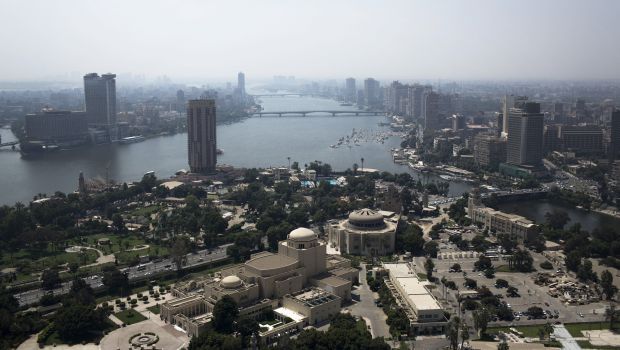Over a quiet lunch in London, a figure familiar with the economies of the Middle East asked me: “Did you know that the annual support for goods and services in the Egyptian budget is comfortably greater than spending on health and education? This is a situation that is contrary to any correct developmental efforts, as education is the path to the future, while raising the level of health care also raises the level of production and lowers the cost of treatment.”
The ever-present response to this is: So what should we do? For it is difficult for any decision-maker or government to convince people that subsidy cuts—which of course means an immediate increase in prices—is in their interests in light of low income levels, with many barely making ends meet at all.
The same figure responded: “Yes, that’s true, that is why these decisions need governments that enjoy a popular mandate so that they are able to take the hard decisions that benefit the people. These may be painful in the short-term, but they put the right foundations in place for long-term development efforts. It is also the role of economic strategists or those responsible for economic files to raise awareness and work on following the right approach for the future, even if these are unpopular.” According to my source, there are also numerous procedures to make sure that this support reaches those who truly need it, and stops the waste which incites some to revolt.
This information is nothing new, and is known to all those familiar with the economy, including the decision-makers. Everybody is well aware that there is a prescription or remedy that must be taken at a specific point. While the government should have taken these decades ago, they have postponed it for fear of inciting public anger. This is what happened in the Sadat era during the 1977 January Bread Riots, when the government at the time tried to reduce subsidies on basic foodstuffs under pressure from the International Monetary Fund. However since that time until today, according to another informed economist, Cairo has followed a policy similar to the popular Egyptian proverb “Placing a hat where needed,” meaning a stop-gap solution that does not address an underlying problem.
These problems are not faced by the Egyptian economy alone, but are shared by many regional economies that followed the same subsidies model. This model is not up to the task of solving the real problem that is only growing larger as time passes, until it has transformed into a critical issue that it is not easy to undo. At the same time, this problem is strangling the arteries of the economy so that it is unable to breathe freely, achieving the correct development to raise the standard of living to create employment opportunities and expand the size of the market to its normal level.
Let us take a look at the Arab Spring, or the waves of revolutions and uprisings that struck a number of Arab states at the same time in 2011, with some taking bloody and even sectarian dimensions, as is happening in Syria today. If we take this into account, we will find a big part of the popular unrest can be traced back to economic reasons relating to living standards and feelings of a lack of economic fairness, as well as high unemployment rates that makes people feel they are facing a future where their ambitions will never come to pass.
The irony is that what happened created a state of great expectations following successful political change. However these raised expectations subsequently clashed with reality and the fact that real change requires hard work that will take long years and hard decisions where the decision-makers hands are not shaking. While there have been significant losses on the ground until now, according to the latest estimates published by Barclay’s Bank, which estimated the losses of the Arab Spring until 2014 at USD 800 billion. These estimates may be what the economy lost as a result of the volatile security situation, as well as the opportunities that were wasted if the economy had continued to experience natural growth rates.
Despite all this, there is no justification for despair, for all of this can be compensated for. The economy is like a machine that requires some repair to work efficiently. A number of countries, including Egypt and Tunisia, are passing through political transition, and the pace of this passage must be increased so that these countries can reach a state of security stability. Following this, there must be a new way of thinking and approach to reform to address root problems, and convince public opinion of this. Genuine economic development is the basis for political stability, and that is the catalyst for social progress.
